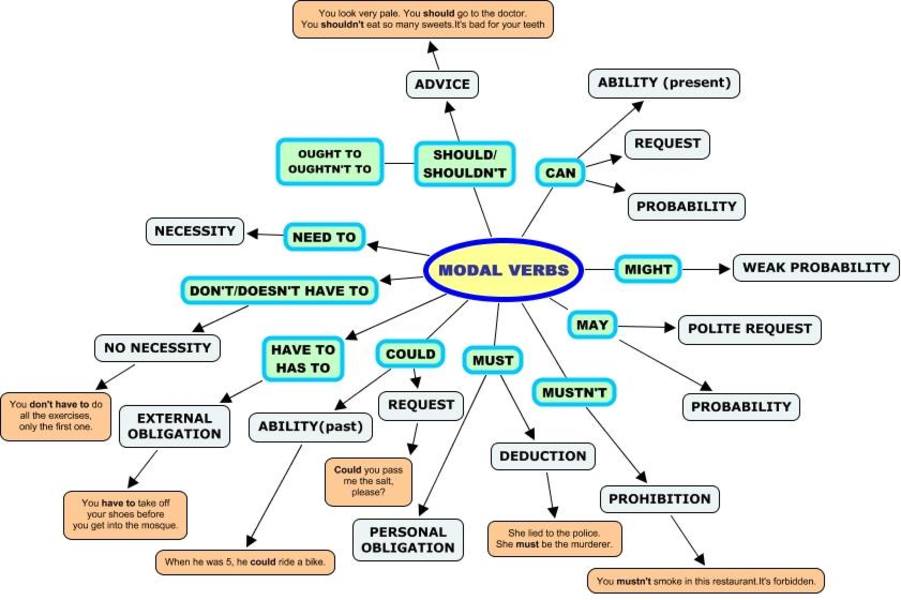Modals الأفعال الناقصة
للاسف لا اعرف كيف يتم تنسيق الموضوع ولكن اعتقد بانه مفهوم....عذرا * A modal has only one form of the verb for all persons, but it can have several meanings and time frames, depending on the context in which it is used.
الفعل الناقص له صيغة واحدة مع جميع الأشخاص ولكن له عدة معاني وأشكال زمنية حسب المحتوى الذي تستخدم فيه.
* Form الصيغة
shall, should, will would, may, might, can, could, must, ought to + (التصريف الأول للفعل)
* Modals have no infinitives or past participles.
وسميت بالناقصة لانه ليس للفعل الناقص مصدر أو تصريف ثالث.
Modals
الأفعال الناقصةExpresses:
تعبر عن:Example
مثال
وعد
تصميم
تهديد
الواجب
النصيحة أو الرأي
صيغة المستقبل البسيط
التصميم أو الوعد
We will do as you wish.
الإمكانية
I thought that the weather might change
المقدرة
He is able to solve the problem.
المقدرة على المستقبل
الإمكانية في الماضي/ المضارع / المستقبل
Ali is not in class today. He could be sick.
Do not leave now. It could rain now.
الضرورة
الضرورة في الماضي
النصيحة
أحداث كان من المستحسن عملها في الماضي
(You did not. That was a mistake)
إثبات
نفي
إثباتShort Answers
إجابات مختصرةShould they eat now? Will he leave? Would he leave? Might I succeed? May I sleep? Can I do it? Could he talk? Could we have a test tomorrow? Must you go now? Ought you to help them?





 الافعال الناقصة
الافعال الناقصة

 رد مع اقتباس
رد مع اقتباس
